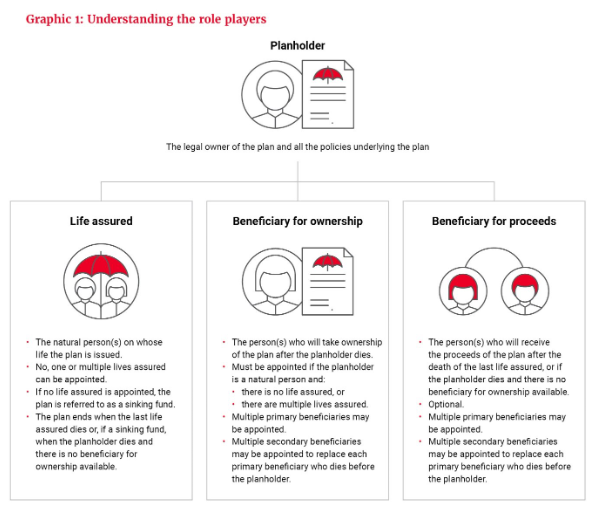Julie Campbell, senior manager, and Guané Coetzer, offshore specialist at Allan Gray

Investing offshore as a way to diversify and grow one’s wealth is even more relevant today, as investors seek strategies that will safeguard their wealth in an uncertain world for generations to come. Offshore endowments can be a powerful tool to build this legacy.
An offshore endowment is an investment-linked, long-term product that is suitable for investors who want to diversify their portfolio across economies and regions outside South Africa, have a marginal tax rate of higher than 30% and require a product that offers tax efficiency and estate-planning benefits.
What are the key features of an offshore endowment?
Tax efficiency
The effective capital gains tax (CGT) rate for an individual investing in an endowment (the “planholder”) is fixed at 12% (capital gains inclusion rate of 40%, which is taxed at a fixed rate of 30%) compared to a maximum effective tax rate of 18% for a marginal taxpayer on gains in a basic unit trust investment (capital gains inclusion rate of 40%, which is taxed at 45%). The product therefore becomes tax efficient when an individual investor’s marginal tax rate is higher than 30%. Different tax rates apply to companies and trusts. The calculation, deduction and payment of tax are taken care of by the life company that offers the product – which relieves the planholder from any reporting responsibility or liability for taxes on the investment.
Estate-planning benefits
The product also offers estate-planning benefits, allowing for continuity and transfer of wealth on the death of the planholder. No offshore will is needed and, if beneficiaries are appointed, there will be no delay while the estate is being wound up as the investment can be paid out or transferred immediately. In addition, when a beneficiary becomes the new owner of the investment, they can make unrestricted withdrawals, provided the 120% rule is not triggered (the 120% rule is discussed in the “Liquidity” section).
Where beneficiaries are appointed, there are no executor fees on the value of the investment, although the investment will still form part of the deceased estate (subject to certain exemptions). Meanwhile, CGT will only be triggered when the investment is paid out, not when an appointed beneficiary takes ownership of the investment, provided that the beneficiary is classified in the same way as the original planholder was for tax purposes.

Partner with an Insurer you can trust
In an uncertain financial climate, our client-centric approach of developing strong relationships with partners and clients, while boasting a deep understanding of their business, helps us to create unique solutions.
Centriq’s insurance subsidiaries are authorised financial services providers
Creditor protection
If the planholder is a natural person and appoints a life assured, the total value of the investment will be protected against creditors during their lifetime, provided the endowment is issued on the life of the planholder or their spouse and has been in force for at least three years. To qualify for creditor protection on the death of the planholder, the surviving spouse, children, stepchildren or parent must benefit from the endowment on the planholder’s death.

Introducing the Allan Gray Offshore Endowment
In recognition of the growing need for tax-efficient offshore investment products, Allan Gray launched the Offshore Endowment, which is structured with maximum flexibility in mind, aiming to empower investors to access global markets and take advantage of international opportunities, while offering competitive pricing and familiar client service through its local team.
It offers South African resident investors a way to diversify their portfolios and ensure efficient wealth transfer for future generations. Residents of other countries can also invest but should obtain independent advice regarding the legal and tax implications beforehand. The minimum new investment amount is US$25 000 (or the equivalent in EUR or GBP) or R400 000.
It has been designed to provide more flexibility than traditional endowment products – in addition to providing tax efficiencies and estate-planning benefits. Wealth Advisers can explore the following benefits with their clients:
- Liquidity
- A range of offshore funds to choose from
- Policyholder protection
- Easily transact in foreign currency
- Various options available for continuity of the plan

